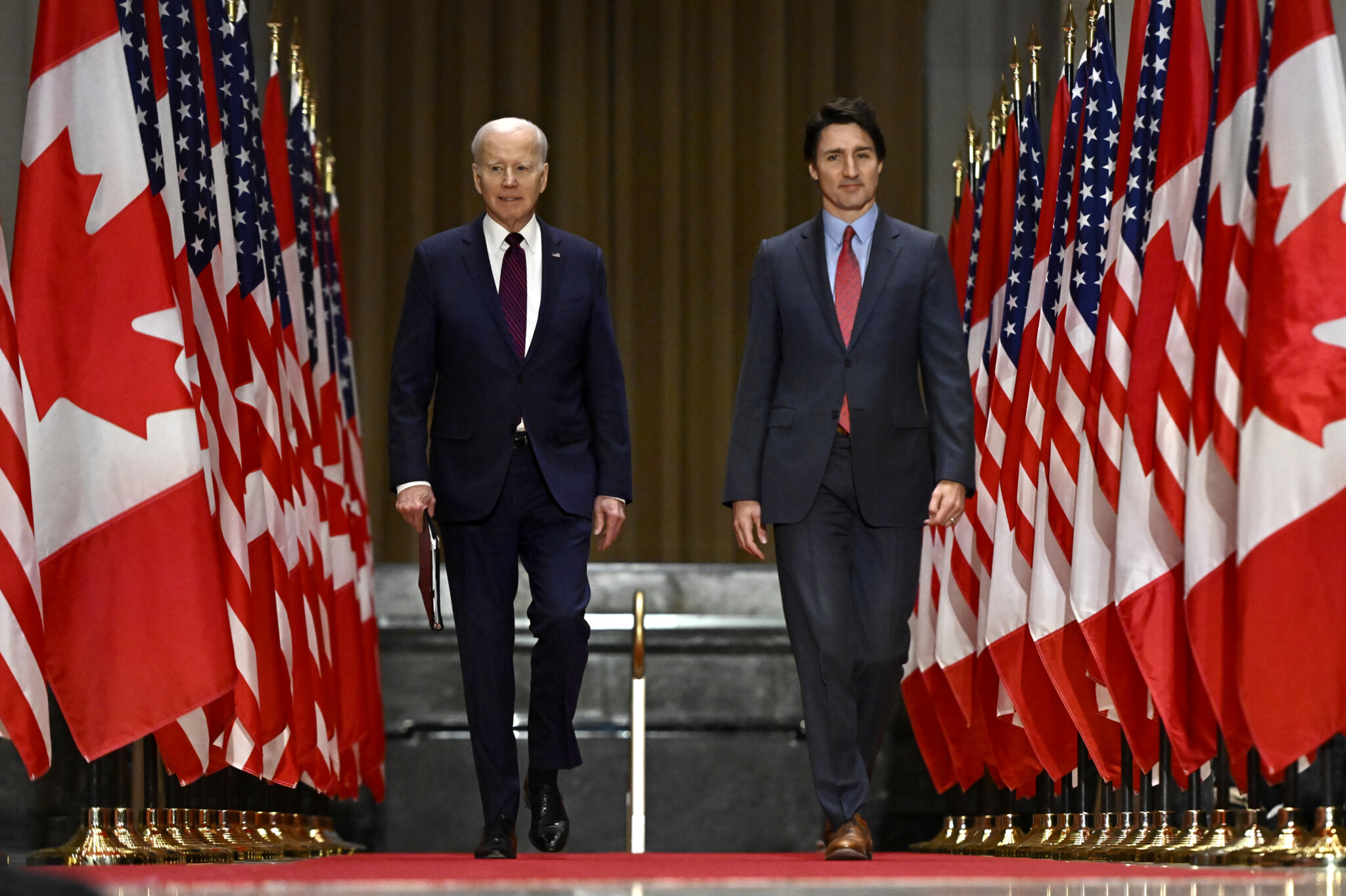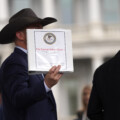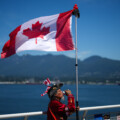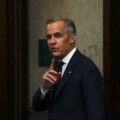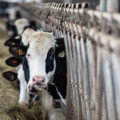Canada’s economy has fallen behind its population growth for the fifth straight quarter, with real GDP per capita declining by 0.1 percent in Q2 2024, according to the latest data from Statistics Canada released last week.
Compared to the same period last year, per capita GDP is now down 2.2 percent. Compared to 2022, it’s down 3.6 percent. As RBC analysts correctly noted, this is a “recession-like” performance.
This downturn becomes even more striking when viewed in comparison to the United States, which continues to see gains.
Real GDP per capita there grew by 0.6 percent in the second quarter, a 2.6 percent increase from last year, and a 4.5 percent increase since 2022. If Canada had simply kept pace with the U.S. over the past two years, our economy would be 8.5 percent larger—that’s about $6,200 more income per Canadian each year.
But as bad as this data may look, there’s more.
A longer historical perspective reveals a striking reality: the gap between the Canadian and American economies has now reached its widest point in nearly a century. If this continues, we’ll have not persistently seen this wide of a gap since the days of John A. Macdonald.
While some parts of Canada are doing better, as I will show, taking bolder action to address this growing prosperity gap is needed. And fast.
The Canada-U.S. prosperity gap
To understand the full extent of the gap, consider the latest data from the OECD for 2023, which I’ve projected forward to 2024 based on the first two quarters and the recent IMF outlook. Real GDP per capita in the U.S. now stands at approximately $66,300 (in 2015 dollars), compared to Canada’s $44,400.
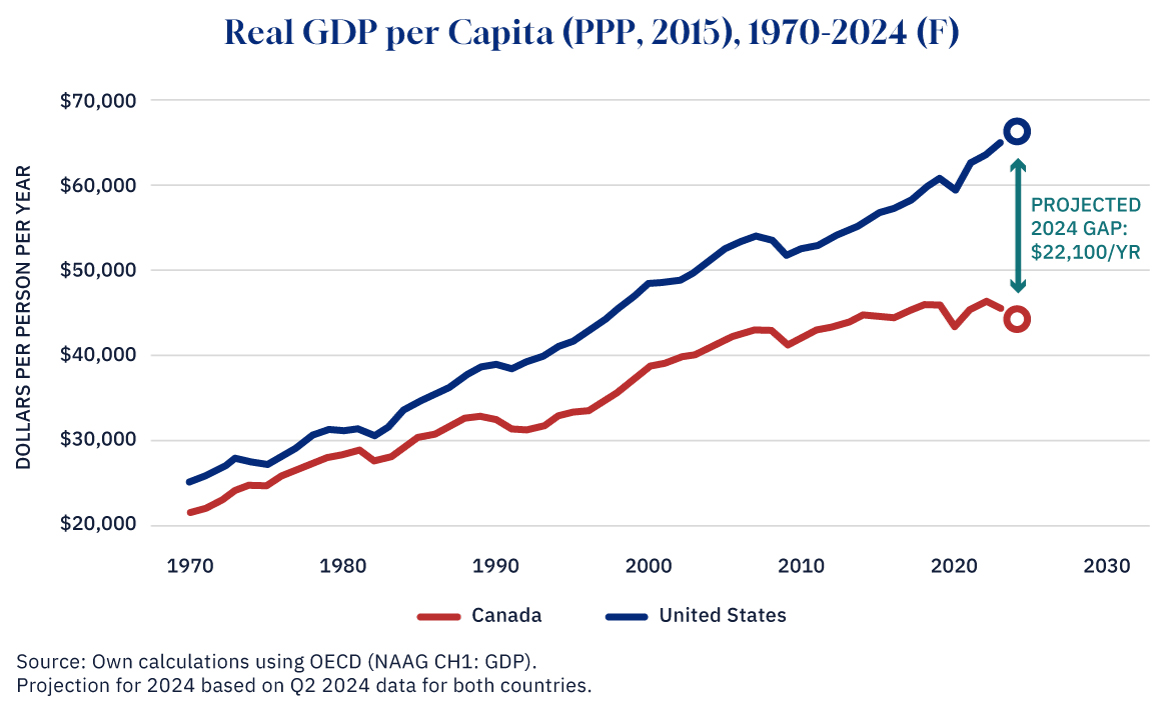
Graphic credit: Janice Nelson.
These values reflect what are called purchasing power parity (PPP) adjusted levels of real GDP per capita in both countries. This accounts for price levels differences between the two countries. And since a dollar in Canada can buy fewer goods and services than a dollar in the U.S., this matters. They also correct for price changes over time.
Simply put, this captures differences in average living standards between the two countries. A $22,100 per year gap (or roughly $28,000 in 2024 dollars) is therefore truly massive.
Put another way, real GDP per capita in the United States was 43 percent higher than in Canada in 2023. And in 2024, I estimate this gap will widen to nearly 50 percent.
Let that sink in for a moment. The U.S. is on track to produce nearly 50 percent more per person than Canada will.
This stunning divergence is unprecedented in modern history.
